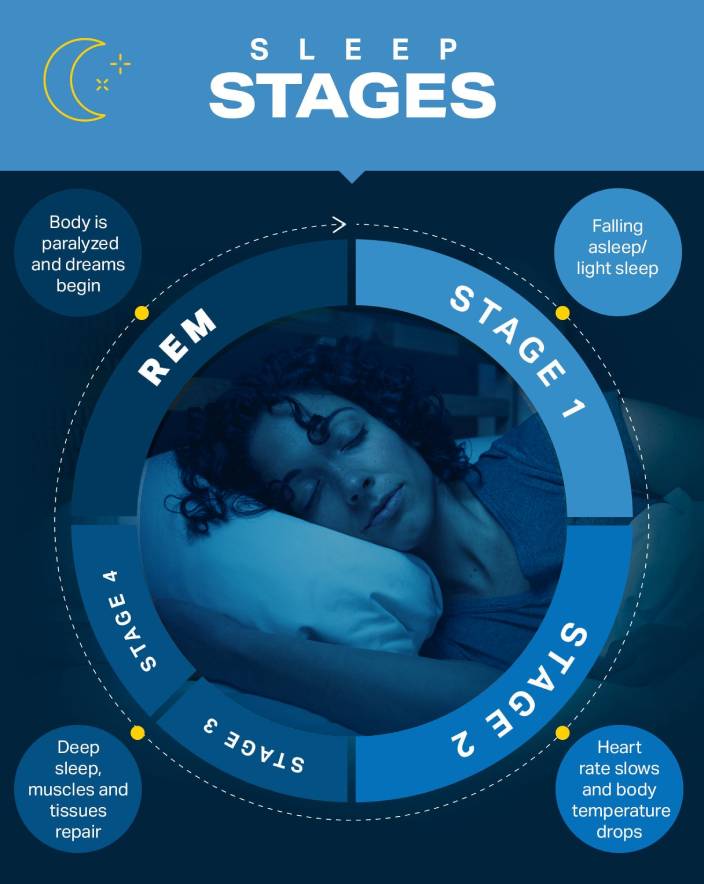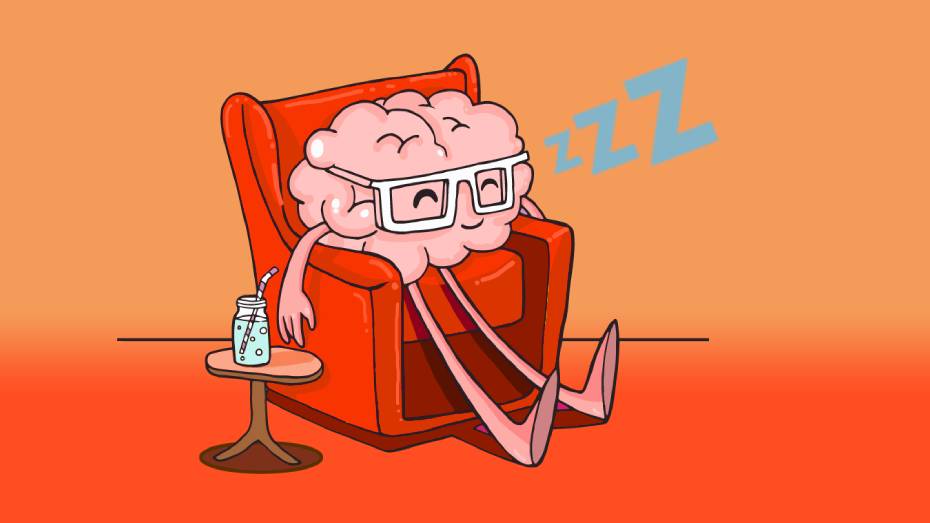- Lack of sleep impairs a person’s ability to focus and learn efficiently.
- It can also affect mood and motivation.
- Sleep is necessary to consolidate a memory (make it stick) so that it can be recalled in the future.
Research suggests that sleep plays an important role in memory, both before and after learning a new task.
That’s because sleep restructures our brain based on thoughts, experiences, and skills we learn during the day. It helps crystallize relevant short term memories into long term memories. So, when you learn something new, the best way to remember it is to sleep on it.
THE SCIENCE OF MEMORY
There are different types of memories. Some are fact-based, such as remembering the name of state capitals. Some are episodic — based on events in your life, such as your first kiss. And some memories are procedural or instructional, such as how to ride a bike or play the piano.
For something to become a memory, three functions must occur, including:
- Acquisition — learning or experiencing something new
- Consolidation — the memory becomes stable in the brain
- Recall — having the ability to access the memory in the future
Acquisition and recall occur when one is awake; consolidation, while asleep. When awake, the brain reacts to external stimuli and encodes new memories that are, at that point, unstable and subject to forgetting. The sleeping brain, with greatly reduced exposure to external stimuli, provides optimal conditions for memory consolidation, which strengthens and integrates new memory into existing knowledge networks.
So, without adequate sleep, your brain has a harder time absorbing and recalling new information.
“We’ve learned that sleep before learning helps prepare your brain for initial formation of memories,” says Dr. Matthew Walker, a sleep scientist at the University of California, Berkeley. “And then, sleep after learning is essential to help save and cement that new information into the architecture of the brain, meaning that you’re less likely to forget it.”
You accumulate many memories, moment by moment, while you’re awake. Most will be forgotten during the day. “When we first form memories, they’re in a very raw and fragile form,” says sleep expert Dr. Robert Stickgold of Harvard Medical School.
But when you doze off, “sleep seems to be a privileged time when the brain goes back through recent memories and decides both what to keep and what not to keep,” Stickgold explains. “During a night of sleep, some memories are strengthened.”
STAGES OF SLEEP

Memories seem to become more stable in the brain during the deep stages of sleep. After that, REM—the most active stage of sleep—seems to play a role in linking together related memories, sometimes in unexpected ways. That’s why a full night of sleep may help with problem-solving. REM sleep also helps you process emotional memories, which can reduce the intensity of emotions.
It’s well known that sleep patterns tend to change as we age. Unfortunately, the deep memory-strengthening stages of sleep start to decline in our late 30s. A study by Walker and colleagues found that adults older than 60 had a 70% loss of deep sleep compared to young adults ages 18 to 25. Older adults had a harder time remembering things the next day, and memory impairment was linked to reductions in deep sleep.
TIPS FOR GOOD SLEEP
Experts recommend adults get seven to nine hours of sleep each night. Although this may not be attainable every night, it should be the goal. To get your best night’s rest, consider the following tips:
- Avoid drinking caffeinated beverages in the afternoon.
- Exercise regularly, but finish your workout at least three hours before bed.
- Finish meals two to three hours before bedtime.
- Power nap for 20 minutes during the day.
- Do not watch TV or use the computer in bed. Use your bedroom for sleep and sex only.
Maintaining a healthy lifestyle, including getting regular and quality sleep, can be a challenge, especially when you are stressed with a work deadline or test. But, remember (and you need sleep to do this!), sleep is your friend. So, when it comes to learning and memory, sleep on it.
References:
Sleep Medicine at Harvard Medical School: “Healthy Sleep: Sleep, Learning, and Memory,” “Sleep and Disease Risk.”
National Sleep Foundation: “Healthy Sleep Tips,” “How Much Sleep Do Adults Need?”
Journal of Sleep Research (2018); https://onlinelibrary.wiley.com/doi/full/10.1111/jsr.12651
